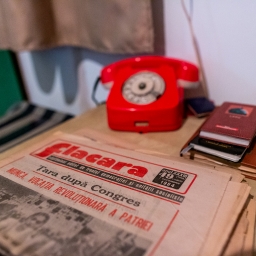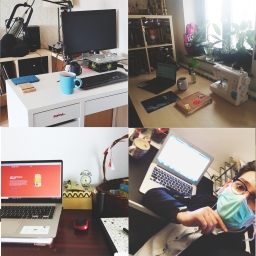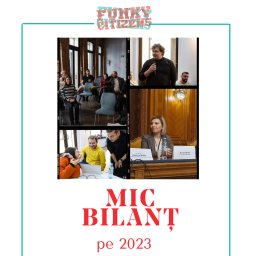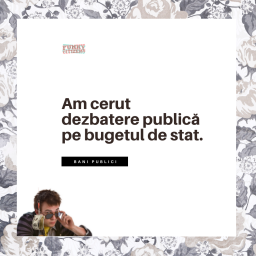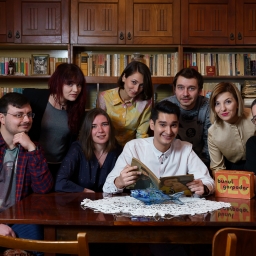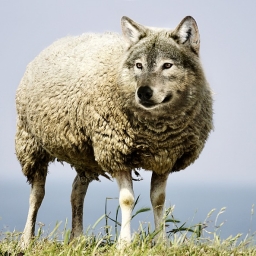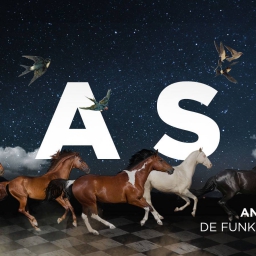In 2021, we got vaccinated and specialised in online events. We met less often at the main office in Colivia, but we doomscrolled daily because we had a lot of news to pick from: the fires in the old hospitals, which are saturated with oxygen, the accelerated spread of fake news and the extreme societal division when it comes to vaccination. Besides this, we carefully followed the irresponsible political crisis last autumn, alongside the eternal nonsensical way in which politicians behave regardless of the season. The sociologist Barbu Mateescu wrote an article in retrospect of 2021, here.
At the beginning of 2022, it is not really easy for us to be the ‘on-call’ optimists. Even so, our heart grows when we meet new people, either in workshops, partnerships or even within our team. In this regard, we welcome Ana Dragomir, who will help with the research and communication sectors. So, we are entering 2022 with the hope that we are not the only ones who are still determined and eager to stay here and to make a difference. We are also thinking about the 2024 elections, when four rounds of elections (European Parliament, local, parliamentary and presidential) will be taking place in the course of one year.
Let's see what the second year of the pandemic looked like for us.
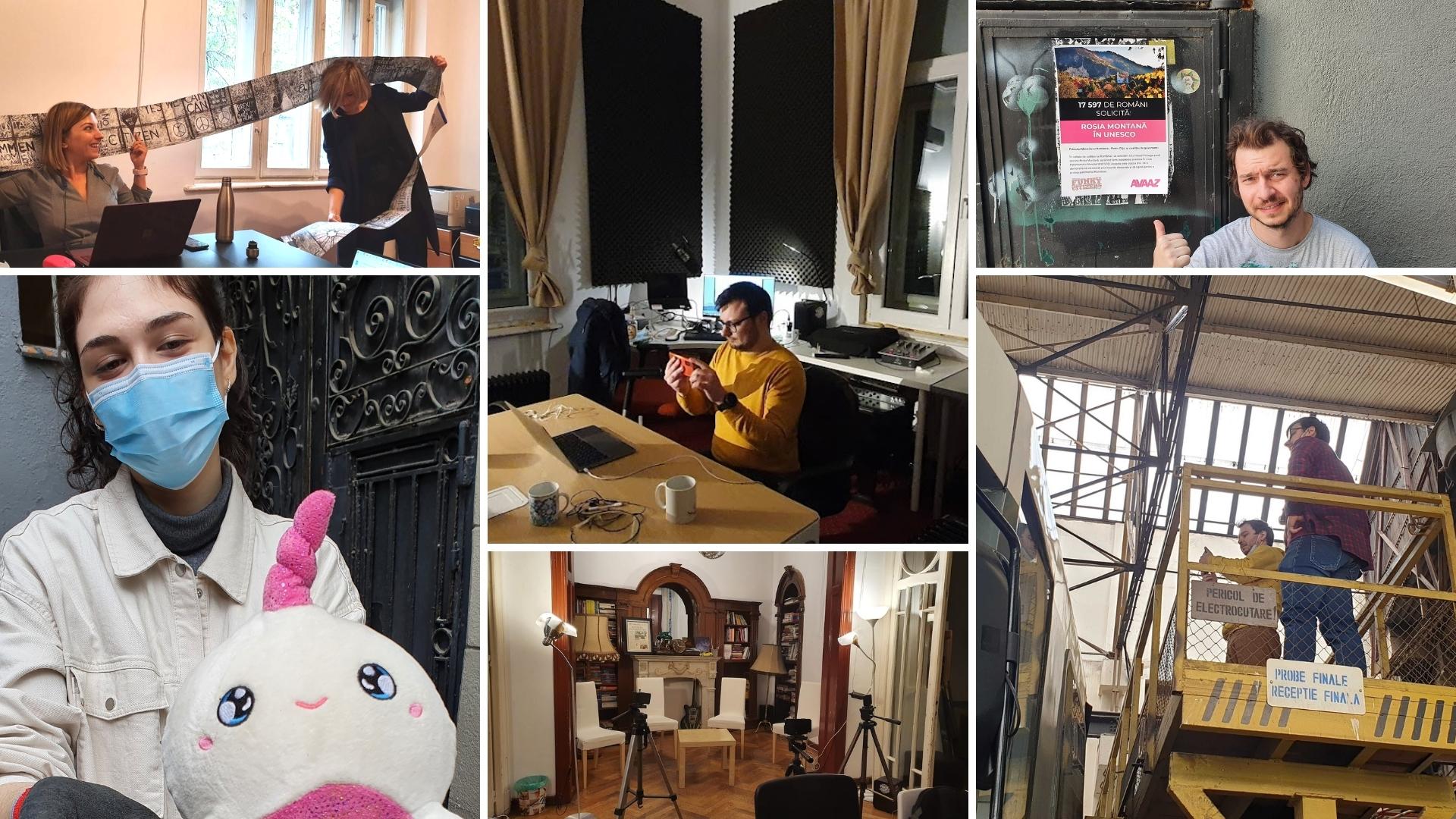
We're expanding through a Funky Republic
The main news of 2021 is that we have started a project that will be keeping us busy for two years, in an attempt to reach those civically-fit citizens outside the Capital. The Funky Republic will be a network of local organisations, set up to support active citizenship and constructive dialogue between local authorities, citizens and civil society representatives. Our activities will involve conducting training in the areas that we are already devoted to, as well as creating an index of transparency and openness of local authorities.

As a teaser of this index, the project began with an analysis measuring the transparency of municipal budgets: more specifically, we researched the extent to which the more than 100 municipalities in Romania comply with the current legislation when drafting and approving local budgets. The Funky Republic will become more visible to the public in 2022: we are currently making an extensive research effort behind the scenes to identify 2 large, 2 medium and 2 small cities, plus a village where we can expand our work. We have a shortlist, but we are going to validate it with the help of sociologists.
On Guard in hospitals

This year as well, somewhat predictably, we have witnessed 4 fires in medical units and hospitals. After each one, the authorities promised that they would investigate the reasons behind the calamities and come up with solutions. As the solutions were slow to come, we realised that what we see is just the tip of the iceberg and that it is important to keep an eye on what is happening in hospitals. Our tool in this fight is the On Guardapp, through which we encourage doctors to tell us, anonymously, what irregularities they see in hospitals. We facilitate this process because we are aware that the whistleblowing culture is seriously underdeveloped in Romania. In 2022, we will start a new project related to whistlebloweriin partnership with journalists from Recorder.
Editorial projects
Bucharest Bulletin, our editorial project launched in 2019, is still trying to survive with a small team and a limited budget. In addition to some breaking-newsthat were also picked up by the mainstream press (The parallel vaccination, The Covid protection medallions purchased by the Voluntari City Hall, Mayor Băluță's online trolls, European funds during the pandemic), we also organized six debates, part of the series Great Bucharest. It was an opportunity to reflect on the future and ask ourselves, alongside experts, journalists and other NGO members, what our capital may look like in the next 30 years. Developed in the context of SIDU Bucharest, „The great Bucharest" continues in 2022. Last year, we focused on six major topics:
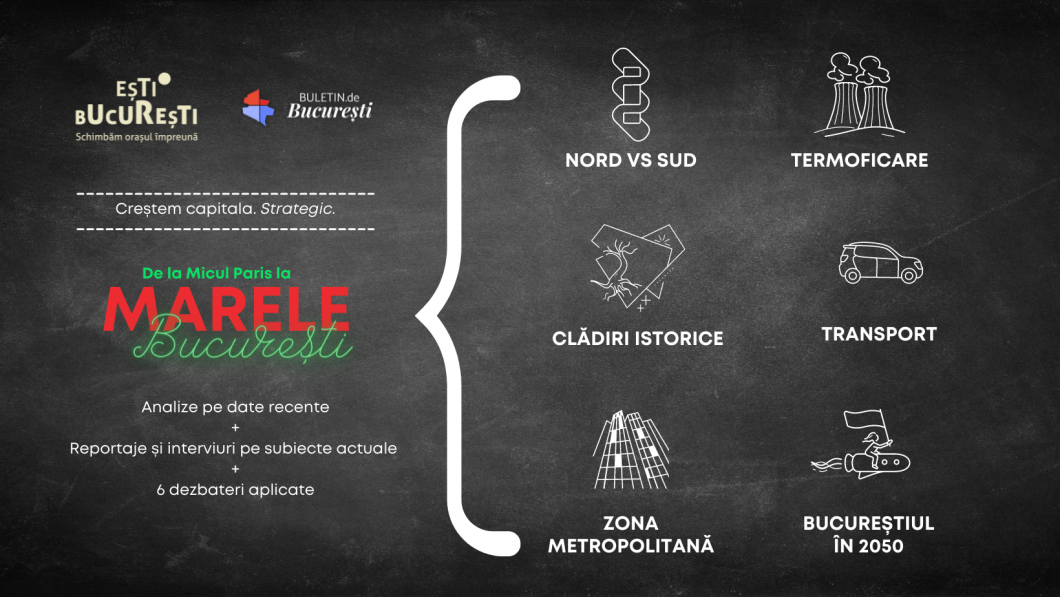
- North vs South
- The heating element
- Warning, falling plaster!
- Sustainable transportation
- The metropolitan Bucharest
- Bucharest 2050
Additionally, we helped the journalists raise 10.000 Euros in a crowdfunding campaign to investigate who is benefiting financially from the pandemic, which companies are winning tenders and where it smells of corruption. The publication's website has also received a small refresh (but it's still a long way to a modern one), and readers can subscribe to the weekly newsletter.
When it comes to fact-checking, writers of Factual continued following the statements of politicians, but also checking the information circulating in the public space and made new friends. The main news is becoming a formal member of the IFCN international network.
Towards the end of the year, we examined the propaganda against the West. Thanks to sponsorship from NATO's Public Diplomacy Division, we explored the anti-Western narratives that were spread in 2021 on Romanian social media. This led to a journalistic investigation, a detailed research into this phenomenon of propaganda, and a video in which the vlogger Zaiafet summarises the conclusions of our findings, talking about 5 Russian fakes.
Advocacy

In 2021, we made our best efforts to integrate the principles of Open Contracting into public procurement law. We have found that some MPs and local elected officials are open to this idea, but we still have to see how their promises will materialise. It is certain that, since 2014, we have been trying to convince decision-makers that this set of rules and practises called open contracting can bring more transparency and efficiency when it comes to public tenders. It may sound abstract, but when more than a quarter of public procurements in Romania are suspected of corruption or fraud, you start to realise how much public money is wasted. We have mentioned these principles ever since our contribution to PNRR and brought them back into discussion in a webinar for local authorities. In the same (virtual) room, mayors, local councillors, specialists from the Open Contracting Partnership organisation, as well as Ukrainian neighbours who told us how they implemented the ProZorro procurement platform discussed the issue. The webinar was preceded by a public conference on the same topic, attended by PSD (The Social Democrat Party), PNL (The National Liberal Party) and USR (Union Save Romania Party) MPs, as well as the French Ambassador to Romania and a representative of the French Anticorruption Agency.

Also this year, we offered to help our friends from Văcărești Natural Park create a network of urban natural areas and promote the legal bill initiated in 2019 for the establishment of such areas.
For the first time ever, we conducted an analysis concerning the activity of MPs. We investigated the parliamentary session from February to June 2021, aiming to discover the pieces of legislation that were passed and how (plus what big issues were ignored by MPs). This was alos an opportunity to briefly explain how Parliament works and, of course, to make some recommendations, mainly for the chaotic websites of the two chambers.

In summer this year, the Roșia Montană site was included in the UNESCO patrimony. Since June, we have requested explanations from Florin Cîțu(then Prime Minister), given that PNL had placed this issue on their governing agenda. Later, together with Declic, we tried to better explain the meaning of Roșia Montană in UNESCO, something that had already become an absurd play. We decided that Romanians must know (#RomâniiTrebuieSăȘtie) and, 3 years after the shameful day of August 10, 2018 we asked, again, for a fair investigation. In vain.
The pandemic did not let us be this year either, we even noticed the effects of the restrictions. We again requested Covid-19 datafiles, and we were angered when the Ministry of Health offered them to us, but it was"sanctioned" with an inspection from the Control Corps. To the then Health Minister we also made a series of recommendations regarding handling expenditures during the pandemic, while we scratched our heads trying to understand why, in the summer, events with 75,000 people were allowed, but not protests with more than 500.
We contributed to a Globsec research on the Romanian Superlatives. On this occasion, we found out that we are the most corona-skeptic people in the CEE region. We have also contributed to the Rule of Law report of the European Commission.

Last but not least, we urged politicians to agree on a Unified Electoral Code , and we addressed an open letter to President Iohannis, asking for zero tolerance in the cases of doctoral plagiarism . We signed another one for mayor Nicușor Dan (who answered affirmatively) in the hope of awarding the Title of Excellence to Gheorghe Ursu, the engineer who tried to warn us of the seismic vulnerability of buildings immediately after the earthquake of '77, but was tortured until death in the Militia detention center.
Civic education
This year, we started off with a series of trainings on topics we mastered. For example, Elena taught other NGOs and educators how to fight misinformation, and Oana Despa taught young people how to deal with the wave of fake news on social media.
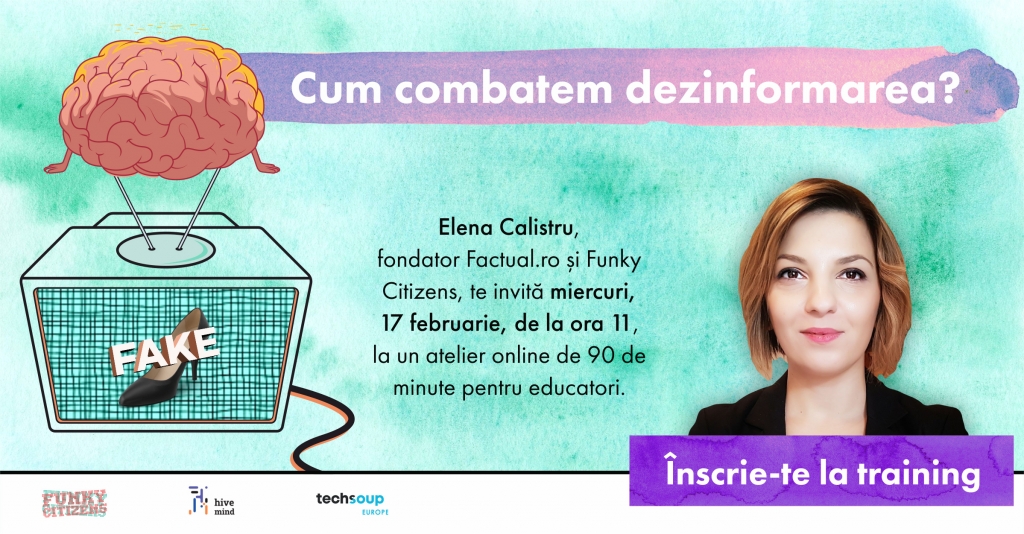
We promoted civic education in easy to digest pieces. Take for instance the Instagram takeover of two students, passionate about the issue of nationalism . Cosmin held a training session at Ideo Ideis. We explained why the Right to know is important and why it was difficult to celebrate it this year. However, we enjoyed our friendship with Cărturești, which allowed us to offer you the books from the Civic Shelf, on Constitution Day.
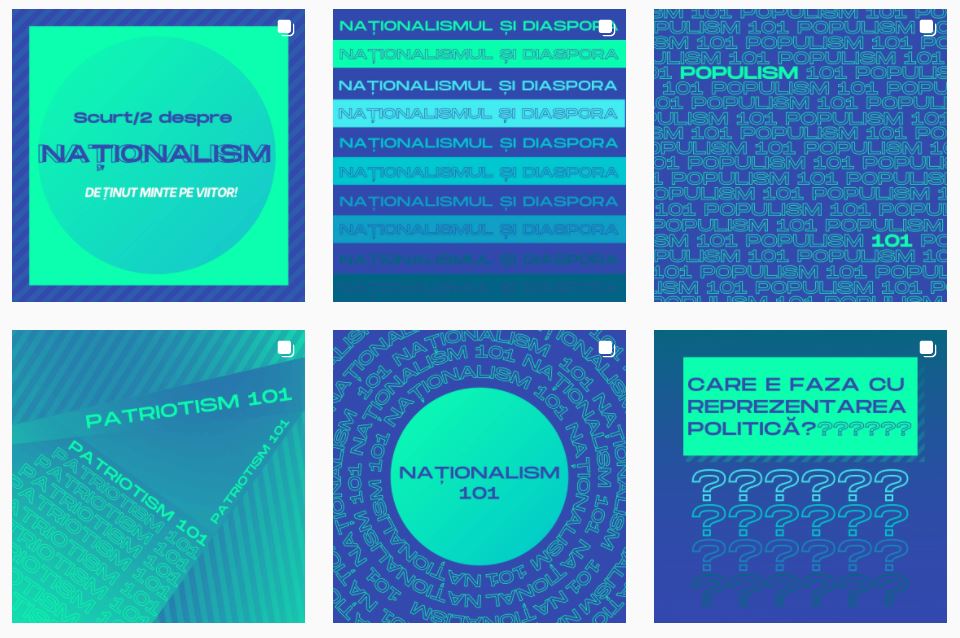
Public funds
This year, we had to file a formal request for a public debate on the state budget twice: once in February, for the 2021 delayed budget and, once again, in December for that of 2022. And, because Prime Minister Cîțu used to say that “many can't read a budget”, we explained the state budget for everyone , with the help of a macroeconomist. We also did our duty to the Open Budget Survey in order to assess how the government performed concerning the fiscal measures taken during the pandemic. We sent our recommendations for transparency in public procurement to European representatives .

We have repeatedly emphasised the fact that the money from the National Recovery and Resilience Plan is an opportunity for our country. Of course, we first had to ask for a re-launch of public debates on updating the PNRR before it reached the European Commission. Subsequently, we also participated in the MIPE consultations and made our own proposals for reforms in the fields of education and transparency of public spending. We stated (with good things and bad things) our opinion about the new form of the PNNR agreement reached by the Romanian authorities. Because it is such a complex topic, we felt the need to explain what PNRR means for our country, in a live discussion Last but not least, because we like public debates about the implementation of crucial economic plans for our country, we requested (and got) a debate on the implementation of the PNRR, finding out where Romania stands regarding the promises of transparent expenditures.
Two centuries ago, he was a Romanian engineer, but this year, Anghel Saligny made all political coalitions tremble. After participating in, as well as commenting on the debate regarding the future piece of legislation concerning the "Anghel Saligny" programme, we asked the Ombudsman to notify the Romanian Constitutional Court when the Government approved the program by a clearly unconstitutional ordinance. Finally, after another debate by the Ministry of Development, we wondered how effective the “Anghel Saligny” program is, called by many PNDL 3.
When you think of something called a "reserve fund", your mind probably wanders towards money put aside for hard days for local authorities. However, after the Cîțu government allocated over one billion euros to politically friendly town halls and councils, we started digging deeper. We discovered that the Budgetary Reserve Fund is an even more serious discretionary allocation than the famous PNDL . In addition to the analysis and visualisations of the monetary distribution, we also compiled the data using the open XLS format. We explained the actual meaning and implications of this reserve fund, live and in detail.
In the press
We are glad to have been on the news this year as well, whether the analyses we publish, the concepts we promote or the solutions we proposes to serious problems were the subject of the Press. We have also gladly responded when journalists asked us directly about our work or found us at events.
If you want to help us do our jobs a bit easier and make tomorrow just that bit less stressful for us, you can do it below.
If you want to see the summary of our previous years:


